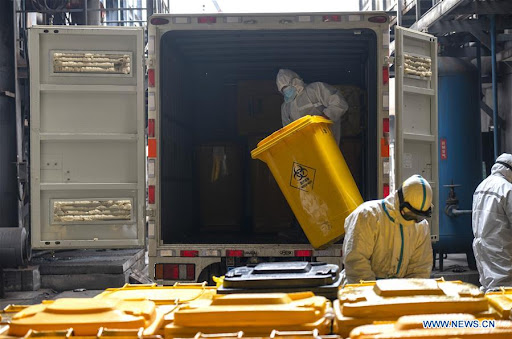A Large Portion of Hospital Wastes Are Dangerous.
There are four different types of medical waste. There’s general waste, infectious medical waste, radioactive waste, and hazardous waste.
Each person working in a hospital setting can be impacted by healthcare waste management. Therefore, each person should be trained and educated on how healthcare waste handling and medical waste treatment disposal processes directly impact infection control.
Different types of healthcare wastes are generated by every department in a hospital, from the janitorial and housekeeping staff to surgical suites, infectious disease units, and so forth. The same thing can be said about Skilled Nursing communities; each facility has unique needs that vary due to the number of beds, the procedures performed, and the healthcare specialities. Therefore, medical Waste Treatment works differently in different fields in the healthcare community.
They work directly with clinical staff to drive better healthcare waste management. Training, container placement, and process improvement within the four walls influence safety, alter segregation behaviours, enhance efficiencies, and drive substantial cost benefits for healthcare workers.
The medical waste treatment focuses on the “Inside the Four Walls” approach where they have seen that it makes a noticeable impact at both acute and non-acute facilities across the country are:
- Safety Infection and Risk Minimization
- Waste Optimization
- Compliance and Education
- Position and Movement
- Storage Optimization
Simplified Medical Waste Management
Regarding the importance of medical waste management, a few things should be initiated, like healthcare waste segregation, an understanding of different healthcare waste stream sources, and regular healthcare waste audit procedures.
It is known that education is the key to awareness and proper healthcare waste segregation and disposal processes inside healthcare facilities. Medical waste treatment management works with you and your staff to ensure everyone feels confident in disposing of healthcare waste.
They make healthcare waste segregation easy by implementing our bold, reusable containment systems. Colour-coded and optimally placed to help you quickly and safely dispose of healthcare waste.
Implementing reusable solutions goes beyond education and enforcement of healthcare waste segregation. By choosing proper medical waste treatment management, you reduce the volume of single-use plastic medical waste containers going to landfills. You are choosing to move your hospital or healthcare facility in a more sustainable direction.
Benefits of hospital waste management
At its foundation, hospital waste management increases the safety of employees and patients by reducing the potential to sustain a sharps injury potential, along with the costs of direct and indirect treatment as a result. It also reduces the risk of exposure to blood-borne pathogens and reduces hospital-acquired infections.
Regulated medical waste is then transported to an approved autoclave treatment facility for sterilization before being taken to a landfill. Other substances that are not destroyed by steam sterilization are transported to an approved incineration plant for destruction.
Failure to properly manage regulated waste could result in hefty fines and penalties from the Health Department.
Although several ways to categorize and name medical waste treatment, the different medical waste streams are all fairly similar. Once you understand the types of waste within each, you can ensure each type is disposed of correctly. Please go through the points above and learn to dispose of medical waste properly, as it important in the healthcare community




















